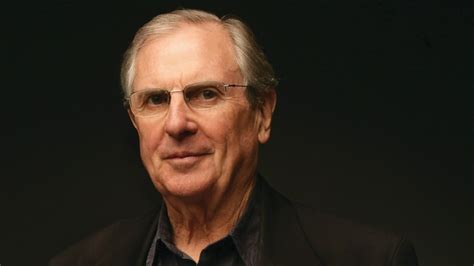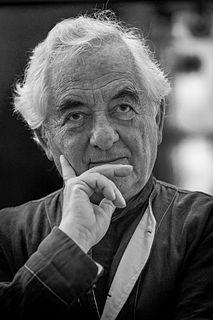A Quote by Northrop Frye
Science begins with the world we have to live in, accepting its data and trying to explain its laws. From there, it moves toward the imagination: it becomes a mental construct, a model of a possible way of interpreting experience. The further it goes in this direction, the more it tends to speak the language of mathematics, which is really one of the languages of the imagination, along with literature and music. Art, on the other hand, begins with the world we construct, not with the world we see. It starts with the imagination, and then works toward ordinary experience.
Quote Topics
Accepting
Along
Art
Becomes
Begins
Construct
Data
Direction
Experience
Explain
Further
Goes
Hand
Imagination
Interpreting
Language
Languages
Laws
Literature
Literature And Music
Live
Mathematics
Mental
Model
More
Moves
Music
Ordinary
Other
Possible
Really
Science
See
Speak
Starts
Tends
Then
Toward
Trying
Way
Which
Works
World
Related Quotes
Henry Corbin creates the world - most of all his examination of the imagination and what the imagination was for him. Some philosophers would think of the imagination as a synthetic ability, how you put different things together. Artists more think of the imagination as creativity. So I really like the way that he presents the imagination as a faculty that allows one to experience worlds that are not exactly physical but are real nonetheless.
The idea of a group of elders is that, in past civilizations, they have linked worlds; the other world was also present in this one. There is also the argument that elders have "experience." The problem is that experience teaches fear of change. Experience kills imagination. Experience makes people conservative. What we are facing tomorrow requires the force of imagination, not wisdom from yesterday.
Science starts with preconception, with the common culture, and with common sense. It moves on to observation, is marked by the discovery of paradox, and is then concerned with the correction of preconception. It moves then to use these corrections for the designing of further observation and for more refined experiment. And as it moves along this course the nature of the evidence and experience that nourish it becomes more and more unfamiliar; it is not just the language that is strange [to common culture].
Because the child must have a valuable thing which is called imagination. The child must have a secret world in which live things that never were. It is necessary that she believe. She must start out believing in things not of this world. Then when the world becomes too ugly for living in, the child can reach back and live in her imagination.
I think imagination is at the heart of everything we do. Scientific discoveries couldn't have happened without imagination. Art, music, and literature couldn't exist without imagination. And so anything that strengthens imagination, and reading certainly does that, can help us for the rest of our lives.
The world of imagination is the world of eternity. It is the divine bosom into which we shall all go after the death of the vegetated [i.e. mortal] body. This world of imagination is infinite and eternal, whereas the world of generation is finite and temporal. There exist in that eternal world the eternal realities of everything which we see reflected in this vegetable glass of nature.
My overall approach toward art is to remain as open as possible in front of the world, to always be curious, not to be afraid to experiment, and have a sense of self-criticism and a general criticism toward the surrounding. Also, trying to make a difference between serious research and pure gag! And making as few compromises as possible toward doing things that might not be accepted by the majority of society, even if this dominant society is the one which is ruling the art world. To keep this fundamental idea, even if it's a bit trivial: to have the desire to transform the world.
There are two - parallel - universes of science. One is the actual day-to-day work of scientists, patiently researching into all parts of the world and sometimes making amazing discoveries. The other is the role science plays in the public imagination - the powerful effect it has in shaping how millions of ordinary people see the world.



































